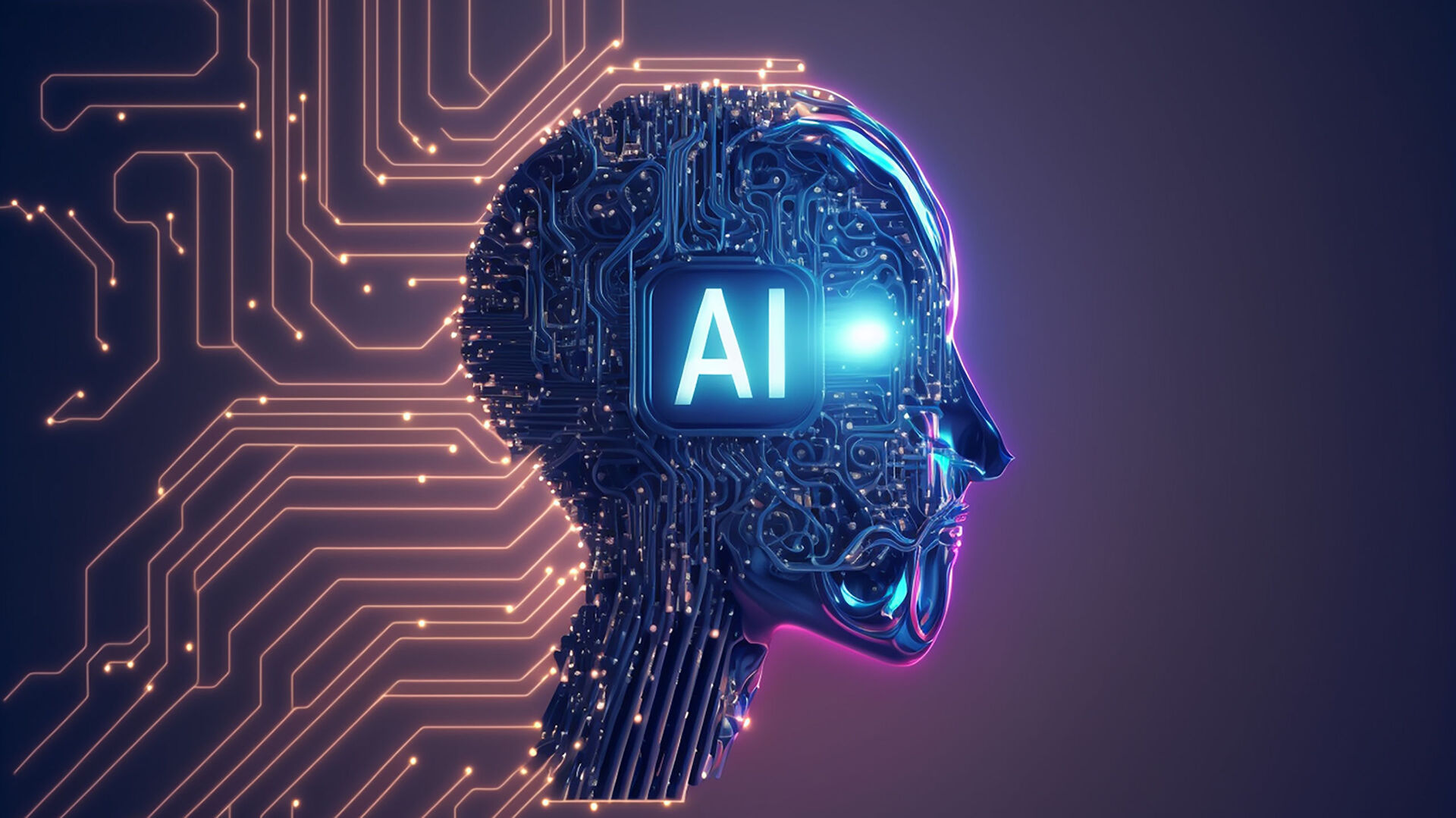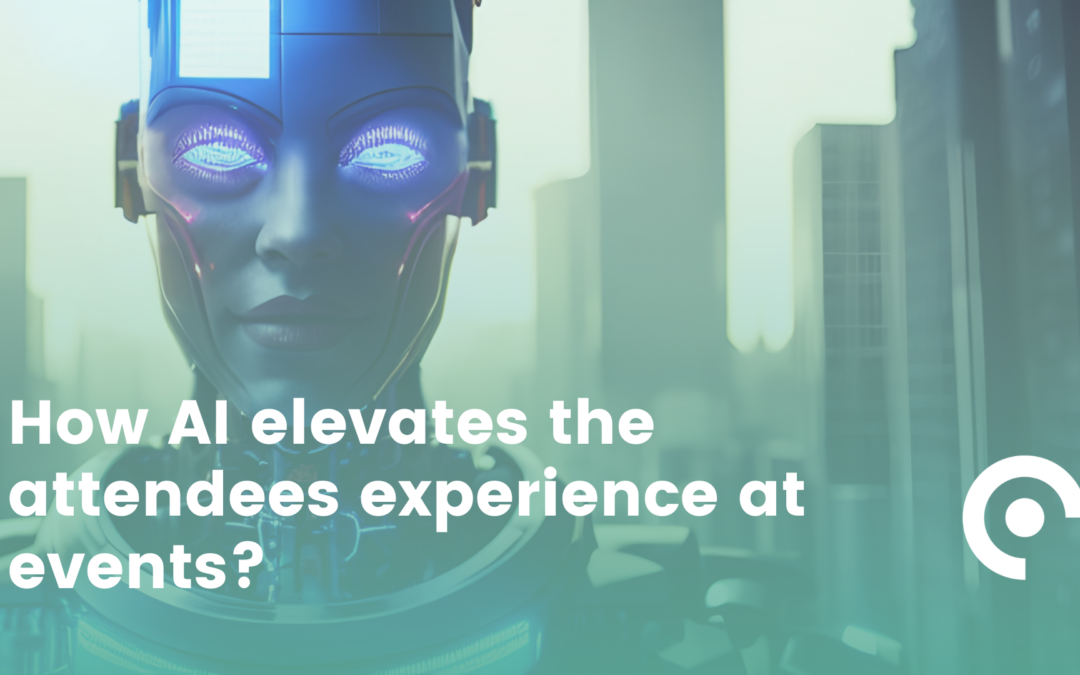Índice de contenidos
Over the last decade, AI events has emerged as a transformative force in a variety of sectors. Its ability to process large volumes of data and learn from it allows it to deliver innovative solutions in real time. One of the fields where its impact has been notable is in event organization, where AI not only optimizes logistics, but also improves the attendee experience significantly. Can you imagine attending an event where everything is designed for you, based on your interests? That’s reality that AI is building.
The role of AI in event management
AI is revolutionizing how events are organized, making them more efficient and personalized. From audience segmentation to registration optimisation, AI is facilitating processes that were previously complicated or manual.

Event personalisation
One of the biggest benefits AI offers is the ability to personalize every aspect of the event. By analyzing attendee demographics and previous behavior, AI tools can segment audiences and deliver content tailored to their individual preferences.
AI and audience segmentation
Audience segmentation is key to the success of an event. AI can identify specific groups within an audience and create tailored experiences. For example, if an attendee is interested in technology, AI can recommend sessions, keynotes or booths that align with those interests.
Enhancing the attendee experience during the event
Once inside the event, AI continues to work to improve every aspect of the attendee experience. From virtual assistants to real-time translations, the possibilities are almost endless.
AI-powered virtual assistants
AI-powered virtual assistants, such as chatbots or mobile apps, provide immediate support. Whether it’s answering frequently asked questions or guiding attendees around the venue, these tools are a relief for organizers and participants alike.
Real-time assistance and frequently asked questions
Virtual assistants are able to provide immediate answers to the most common queries. From session schedules to booth locations, all information is at their fingertips, allowing attendees to focus on enjoying the event.
Real-time translation
For international events, the language barrier has always been a challenges. However, thanks to AI, it is possible to offer real-time translation, making content accessible to a global audience.
Breaking down language barriers
Through the use of AI tools, such as voice assistants and live translation software, attendees can listen to or read content in their own language, removing communication barriers and facilitating a deeper understanding of presentations.
Impact of AI on interaction and networking
AI also plays a crucial role in improving networking during events. By analyzing attendees’ interests and profiles, it can suggest valuable connections and create opportunities for participants to interact more efficiently.

AI in creating valuable connections
Events are often an opportunity for networking, but finding the right people can be like looking for a needle in a haystack. AI can recommend who attendees should connect with based on their professional and personal interests.
Automatic networking suggestions
Using data such as professional history and previous interactions, AI systems can suggest specific connections. For example, if two attendees have similar or complementary interests, AI can suggest a meeting between them.
AI platforms for hybrid events
With the rise of hybrid events, which combine face-to-face and virtual attendees, AI has become an essential pillar for managing these experiences.
Encouraging remote participation
AI facilitates interaction between face-to-face and virtual attendees, whether through automated chats, live translation or content recommendations tailored to their interests. In this way, virtual participants do not feel isolated and can have as enriching an experience as those attending in person.
AI in event post-production
Once the event is over, AI continues to deliver value. From data analysis to post-event content personalisation, AI tools allow organizers to continuously improve.
Data analysis and feedback
AI can analyze large amounts of data generated during the event, providing organizers with valuable information on attendee behavior, most popular sessions and areas for improvement.
AI to improve future events
Based on the feedback and data collected, organizers can adjust their strategies for future events, making each edition more effective and aligned with audience expectations.
Personalized post-event content
After the event, AI can continue to enhance the attendee experience by delivering personalized content.
Recommendations based on interactions
Based on interactions and sessions attended, AI can suggest additional content such as articles, videos or webinars related to the attendee’s topics of interest, extending the value of the event beyond its completion.
Artificial intelligence has completely transformed the way events are organized and enjoyed. From personalisation to real-time interaction, AI not only enhances the attendee experience, but also optimizes the work of event organizers. The future of events will increasingly be driven by AI, and those who embrace these technologies will be better positioned to deliver unforgettable experiences for their attendees.
Related blogs:
- The vital role Meetmaps plays in conference automation
- How to improve the attendee experience at festivals with Event Management Software?
- Importance of integrating an event management software with a CRM
- Boost your medical event with the use of technology
- The role of Event Management Software in database security in events

